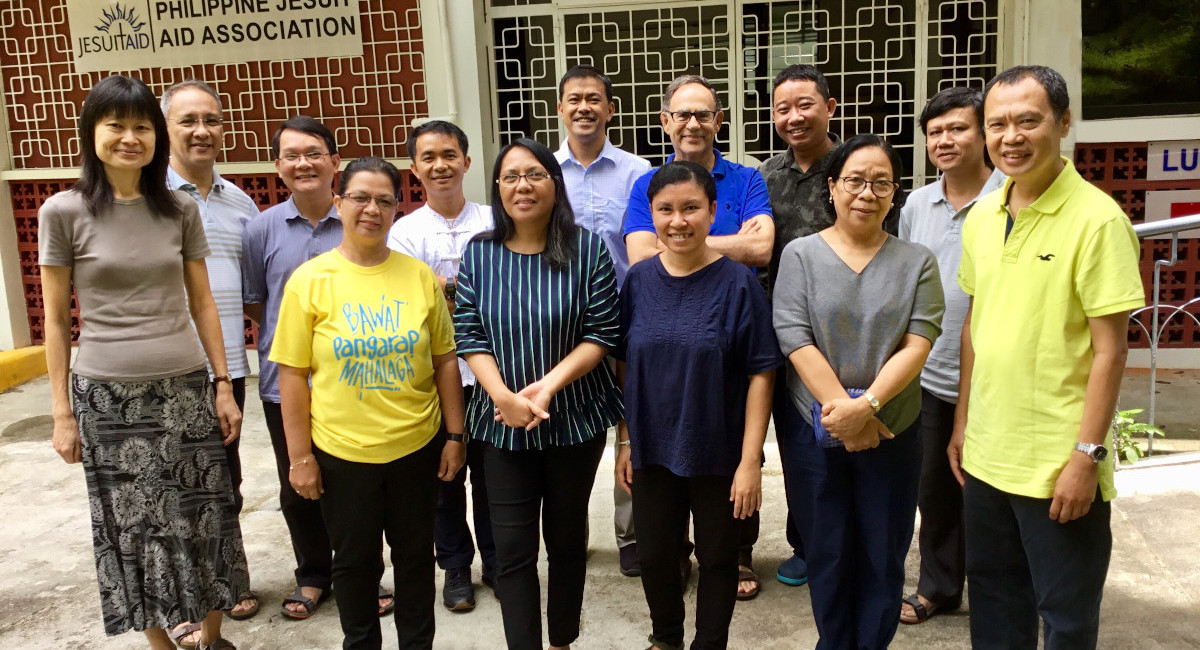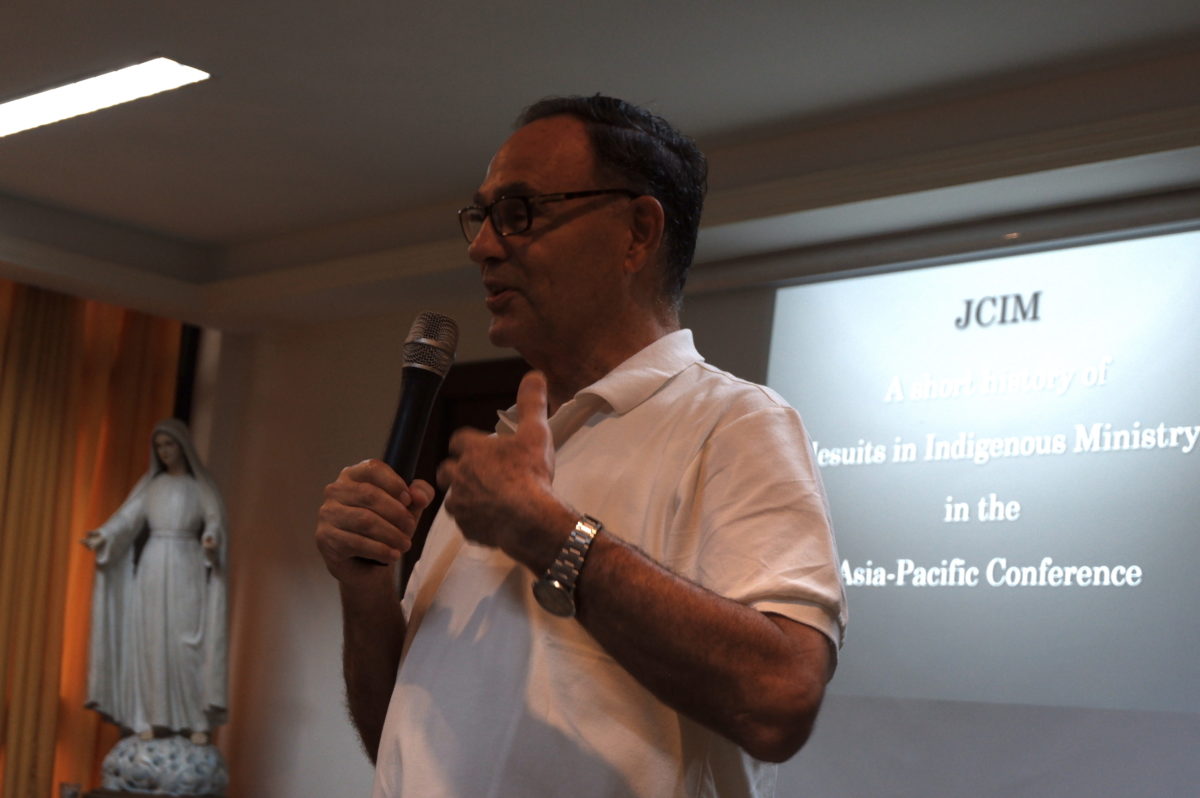
In the last two decades, the Jesuits in Asia Pacific have been working with Indigenous Peoples in Australia and Oceania, Cambodia, East Timor, Indonesia, Laos, Malaysia, Myanmar, Taiwan, Thailand, the Philippines and Vietnam. The first meeting was held in 1999: a small group gathered in northern Taiwan, in an Aboriginal village called Chingchuan, which means “Clear Springs”. Fr Michael Czerny SJ, who was then Fr General Peter-Hans Kovlenbach’s delegate for the Social Apostolate, was the facilitator, while Fr Jojo Fung SJ was the first coordinator for the group. Since then, they have journeyed deep into the indigenous ministry, which is richly detailed in the recently released book, Jesuit Companions in Indigenous Ministry 1999-2019 .
Newly appointed coordinator Fr Ambrosio Flores SJ and various members of JCIM met at the beginning of September at the Lucas Renewal Center on the campus of the Ateneo de Manila University. The focus of the discussion was on the Universal Apostolic Preferences. The meeting began with a presentation by Fr Barry Martinson SJ–one of the group’s pioneers–who shared the history of JCIM, accompanied by many wonderful photographs he had taken throughout the years.

The fruits of the group’s discernment and discussion were crystalised in a meeting statement: “On its twentieth year as an apostolic network of the Jesuit Conference of Asia Pacific, the Jesuit Companions in Indigenous Ministry journeys with the indigenous ministries of the provinces and regions of the conference, collaborates with other Jesuit networks in the conference and connects with other local and international organizations working with Indigenous Peoples”. Furthermore, the network defined its roles as well as identified goals and actions that will bring JCIM into the next part of the journey with Indigenous Peoples, with the Universal Apostolic Preferences to guide and orient them.

